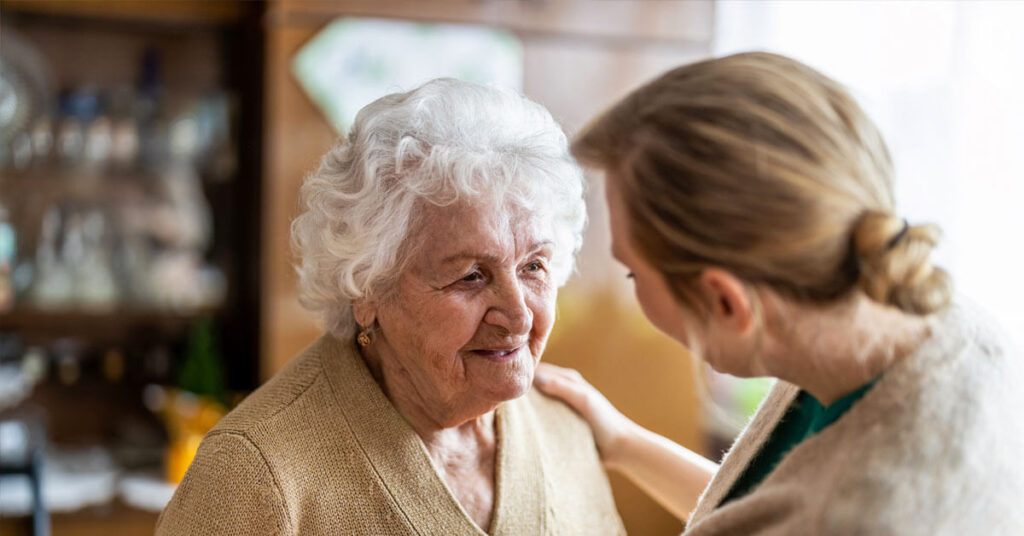
As our loved ones age, their physical and mental health can go through various changes. While some degree of change in behavior is normal as a part of the aging process, sudden or significant shifts can signal underlying health issues that require attention. As a family member or caregiver, it’s crucial to recognize these changes early. This ensures your loved one receives the appropriate care and intervention they may need.
At Venture Forthe, we understand that providing compassionate, personalized care for the elderly involves not just physical assistance. It also requires emotional support. Below, we outline some of the key behavioral changes to look out for and what they might indicate for our loved ones.
-
Mood Swings and Emotional Disturbances
A sudden shift in mood or emotional state in an elderly person can be concerning. For example, a generally calm individual becoming easily agitated, angry, or overly anxious may be experiencing a range of health issues. Possible causes include:
- Depression: Seniors are at higher risk for depression, which can manifest as irritability, sadness, lack of interest in activities, or withdrawal from loved ones.
- Cognitive Decline: Conditions such as dementia or Alzheimer’s disease can lead to mood instability, confusion, and aggression.
If you notice these changes, it’s important to consult with a healthcare provider. They will assess the potential causes and adjust care accordingly.
-
Sudden Memory Loss or Forgetfulness
While some forgetfulness is a natural part of aging, marked memory loss—such as forgetting important appointments, recent conversations, or where things are placed—can be a sign of something more serious. It could point to:
- Dementia or Alzheimer’s Disease: These conditions often start with minor memory lapses but gradually worsen over time. If you notice a pattern of memory loss that affects daily activities, seek a professional evaluation.
- Nutritional Deficiencies: Lack of proper nutrition, such as vitamin B12 deficiency, can cause confusion, forgetfulness, and cognitive difficulties.
In cases where memory issues affect a loved one’s ability to function independently, consider arranging for in-home care to assist with daily tasks.
-
Changes in Sleep Patterns
Alterations in sleep can affect the elderly in various ways. A sudden change in sleeping habits—such as insomnia, excessive daytime sleepiness, or waking up in the middle of the night—can point to multiple potential issues:
- Sleep Disorders: Conditions like sleep apnea or restless leg syndrome are common in older adults and can interfere with restful sleep.
- Medications: Certain medications can have side effects that alter sleeping habits, leading to disruptions.
If sleep changes become a persistent issue, a doctor may need to perform a sleep study. They may also evaluate medications for possible alternatives.
-
Changes in Eating Habits or Weight Loss
If an elderly individual is experiencing a sudden loss of appetite or significant weight loss, it could signal a number of underlying problems. These may include:
- Physical Illness: Conditions such as cancer, digestive disorders, or thyroid issues can cause weight loss and changes in appetite.
- Mental Health Issues: Depression or anxiety often lead to a lack of interest in food or eating. This can result in malnutrition if left unaddressed.
A healthcare professional should evaluate the senior’s physical and mental health if these changes are noticed.
-
Withdrawal from Social Activities
Social withdrawal is another sign that something may be wrong. If an elderly person who once enjoyed interacting with others suddenly isolates themselves, it could point to:
- Depression: A significant cause of social withdrawal in older adults is depression, often linked to the loss of loved ones, physical limitations, or feeling of loneliness.
- Cognitive Decline: Seniors with dementia or other cognitive impairments may withdraw from social activities because they feel confused or overwhelmed in social situations.
It’s important to continue encouraging social engagement, even if the senior seems reluctant. Isolation can worsen mental and emotional health.
-
Increased Physical Symptoms or Complaints
Elderly individuals may not always verbalize what they’re feeling, but sudden or increased physical complaints can be a red flag. Symptoms such as:
- Chronic Pain or Discomfort: Seniors may experience new or worsening pain, especially in joints, muscles, or the back. This could be a result of arthritis, osteoporosis, or other age-related conditions.
- Difficulty with Coordination or Balance: Falls and balance issues are not uncommon as we age, but they can also be signs of neurological issues such as Parkinson’s disease or a stroke.
If you notice physical symptoms becoming more frequent or persistent, a thorough medical assessment is necessary. This can help to rule out serious conditions.
-
Increased Confusion or Disorientation
An elderly person who experiences increasing confusion, disorientation, or difficulty following conversations may be dealing with a cognitive disorder or other health problems:
- Dementia or Alzheimer’s Disease: These conditions are the leading cause of confusion and disorientation in seniors. They typically progress over time, starting with mild confusion and escalating to more severe cognitive decline.
- Infections: Infections like urinary tract infections (UTIs) can cause confusion and disorientation in older adults, even if they don’t exhibit other symptoms of illness.
When confusion becomes a persistent problem, it’s crucial to speak to a healthcare provider about possible causes and solutions.
The Importance of Early Detection
Recognizing these behavioral changes in elderly loved ones is critical to their health and well-being. By observing shifts in behavior and seeking professional help when needed, families can address underlying health issues early and improve the quality of care their loved ones receive.
At Venture Forthe, we are committed to providing personalized in-home care that not only addresses physical needs but also fosters emotional well-being. If you notice concerning changes in a senior’s behavior, don’t hesitate to reach out for support. Our licensed caregivers are here to provide compassionate care and offer peace of mind. They will ensure that your loved ones receive the attention and care they deserve.
Looking for home care as an increased support system for your loved ones? Contact Venture Forthe today to learn more about our services.
